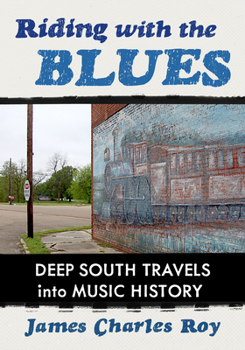Riding with the Blues: Deep South Travels Into Music History
Classic blues, one of America's most unique musical art forms, did not originate out of thin air, and cannot be described as merely a Southern phenomenon. The blues were born, very specifically, in a portion of Mississippi known as "the Delta," a formerly cotton-growing feudal kingdom of sorts, stretching from Memphis, Tennessee, south to Vicksburg, hugging the great Mississippi River in between these cities along its eastern shore. For well over 100 years, these thousands of acres represented a private preserve ruled by a caste of white plantation owners who dominated every aspect of private and public life. Black agricultural workers, initially slaves but then, after the Civil War, reduced to the status of sharecroppers, were a deprived underclass.
This book combines travelogue with history, tracing the lives and careers of blues icons Robert Johnson, Charlie Patton, Muddy Waters, Sonny Boy Williamson, B.B. King, and a host of others who created and shaped the blues in all its variants, both acoustic and electric. It explores the context that shaped their music, including segregation and Jim Crow laws, poverty, moonshine whiskey, and the evolving recording industry. In doing so, it illuminates both the origins of the blues and its longstanding cultural impact, blending many strands into a memorable narrative.





